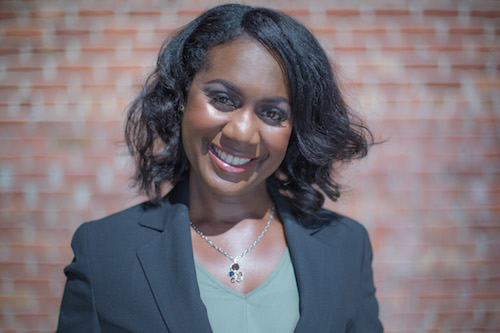As on-campus protests centered around systematic racism have spread across the U.S., more schools are taking on diversity officers and trying to train freshman from their very first day to be more culturally aware.
The New York Times reported one instance of microaggression training at Clark University in Worcester, Mass. Microaggressions, a sort of invisible bias which may be intentional or unintentional, are the everyday, common verbal and nonverbal insults and comments that hurt marginalized groups. During freshmen orientation, lawyer Sheree Marlowe—the school’s new diversity officer—went through a list of subtle-but-common offenses.
 For example, no—it's not okay for a white female, regardless of who she's with, to sing along to music that uses the N-word, as one Clark freshman asked in the assembly.
For example, no—it's not okay for a white female, regardless of who she's with, to sing along to music that uses the N-word, as one Clark freshman asked in the assembly.
According to Marlowe, it also isn’t okay to ask an Asian student for help on math homework, ask a black student if he plays basketball, say “you guys” to a group of people, ask someone their ethnicity because they look “interesting,” or attribute someone else’s accomplishments to their race, just to name a few.
Clark isn’t the only school upgrading diversity education on campus. According to the Times, around 75 chief diversity officers have been taken on by U.S. colleges in the past year and a half. The International Business Times reported that California State University, Los Angeles, will now allow black students to live housing just for them in order to prevent microaggressions and racist remarks. Meanwhile, the University of Wisconsin system asked state lawmakers in August for $6 million to instate cultural training and other diversity experience for faculty, students and staff.
The goal of avoiding microaggressions is to create nonaggressive, comfortable environments for all students. But not everyone is jumping onboard with the relatively new concept of an anti-microaggression campus that promises “safe spaces” for all.
this article about microaggressions makes me want to do macroaggressions
— Erin Gloria Ryan (@morninggloria) September 6, 2016
Everybody is so soft nowadays. If you get offended by microaggressions don't talk to me
— Groot (@EvanJurkowski) August 27, 2016
In response to UW’s request for funds, Wisconsin State Senator Stephen Nass said in a statement, “If only the taxpayers and tuition-paying families had a safe space that might protect them from wasteful UW System spending on political correctness.”
Meanwhile, University of Chicago Dean of Students John Ellison penned a not-so-welcoming “welcome” letter to incoming freshmen this year, in which he openly denounced safe spaces and trigger warnings in general.
“We do not support so-called ‘trigger warnings,’” wrote Ellison. “We do not cancel invited speakers because their topics might prove controversial, and we do not condone the creation of intellectual ‘safe spaces’ where individuals can retreat from ideas and perspectives at odds with their own.”
While students and diversity proponents found Ellison’s letter troubling, especially when it comes to mental health on campus, free speech supporters have rallied around Ellison’s statement. Many more have criticized such safe spaces as a part of the tidal wave of “political correctness,” including Republican presidential nominee Donald Trump. There has also been a spike in white supremacist groups in the past year, surrounding issues of both political correctness and racial tensions.
However, campuses that have not handled racial tensions well, like the University of Missouri, saw a significant drop in enrollment this year. This suggests that if schools want to stay afloat and competitive, broad diversity is a must. Archie Ervin, the president of the National Association of Diversity Officers in Higher Education, explained to The NY Times, “If you have sustained enrollment drops and disproportionately full-paying students such as out-of-state, the state legislature can’t make up the gap.”
in the realm of "i feel death may be upon me but i am still appreciative of good news," we had a whole seminar on microaggressions today
— sour nerd (@allohillary) August 27, 2016